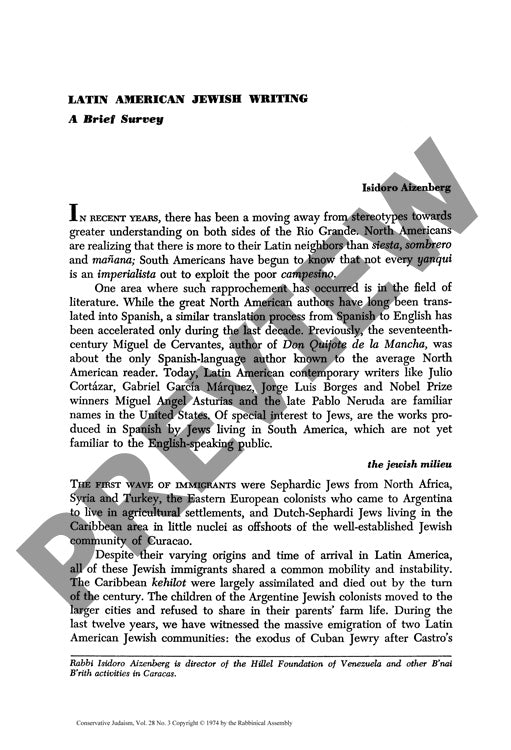Latin American Jewish Writing a Brief Su
Couldn't load pickup availability
This survey examines the development and characteristics of Latin American Jewish literature from colonial times to the contemporary period. The analysis traces the evolution of Jewish writing in Spanish-speaking America, beginning with isolated colonial works and progressing through waves of immigration that shaped modern Jewish literary production. The methodology employs a chronological and thematic approach, examining representative authors and works while contextualizing them within broader patterns of Jewish settlement and cultural adaptation. Key findings reveal that Latin American Jewish communities, predominantly established within the last forty years, have produced literature reflecting their rootlessness, assimilation struggles, and cultural instability. Early colonial writers like Luis de Carvajal and Rabbi Isaac Ben David Aboab da Fonseca established precedents, while twentieth-century authors such as Alberto Gerchunoff, Israel Zeitlin, and contemporary novelists Samuel Tamopolsky and Mario Szichman have addressed themes of immigration, identity conflict, and generational change. The study concludes that Latin American Jewish literature remains limited in scope and international recognition, with few works addressing explicitly Jewish themes. Scholarly production similarly shows poverty of authentic sources, though recent university theses by Jewish students suggest emerging academic interest. The analysis demonstrates that this literary corpus reflects the broader challenges facing young, unstable Jewish communities seeking cultural expression while navigating assimilation pressures in their adoptive countries.

More Information
-
Physical Description
-
Publication Information
Published 1974
ISBN
-
Publication Credits
Isidoro Aizenberg

